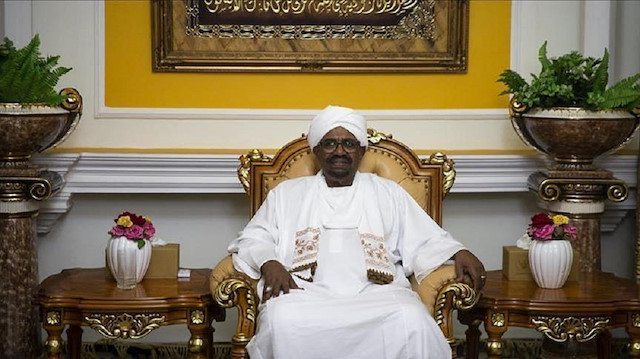
Omar al-Bashir on Sunday became first Arab head of state to visit Syria since eruption of conflict in 2011
A recent visit to Damascus by Sudanese President Omar al-Bashir has prompted questions over its motives and timing.
On Sunday, al-Bashir became the first Arab head of state to visit Damascus since the eruption of the Syria conflict in early 2011.
During his single-day visit, al-Bashir held talks with Syrian regime leader Bashar al-Assad.
Although details of the visit remain vague, Khartoum has described it as a "purely Sudanese move" aimed at achieving inter-Arab rapprochement after years of rift.
According to some reports, the two leaders agreed that inter-Arab relations must be based on respect for national sovereignty and non-interference in other countries’ internal affairs.
According to some analysts, al-Bashir’s visit suggests that Khartoum is distancing itself from a Saudi-UAE axis that has long been the leading proponent of regime change in Syria.
Notably, Sudan is a member of a Saudi-led coalition cobbled together in 2015 to fight Yemen’s Shia Houthi rebel group.
While Khartoum has never stated the number of Sudanese troops taking part in the coalition’s operations in Yemen, it has indicated its readiness to send as many as 6,000 soldiers to the war-torn country.
Meanwhile, analysts say, the recent expansion of Saudi and Emirati influence in East Africa may have raised Sudanese concerns regarding its allies’ intentions on the continent.
This, some observers believe, may have dampened relations between Sudan and its Arab Gulf allies, despite Khartoum’s continued membership in the Saudi-led coalition.
What’s more, Sudan has maintained close ties with Qatar despite an ongoing crisis in relations between Doha on one hand and Saudi Arabia, Egypt and the UAE on the other.
Analysts are also quick to note al-Bashir's ongoing support for certain Islamic groups in his country -- despite continued Saudi-Emirati pressure not to do so.
Al-Bashir, for his part, has pointed out more than once that he himself hails from an Islamic movement, the principles of which he refuses to abandon.
Other analysts have attributed al-Bashir's Syria visit to Khartoum’s mounting impatience following its recent efforts to placate the U.S. -- efforts, it feels, which have so far failed to bear fruit and which might better be spent cultivating relations with Moscow.
At a meeting with Russian President Vladimir Putin in November of last year, the Sudanese president said: "Our stances on Syria are identical; we both believe peace isn’t possible without Assad."
“What’s happening in Syria is the result of American intervention there,” al-Bashir said at the time. “Instability in the region is a direct result of U.S. intervention.”






